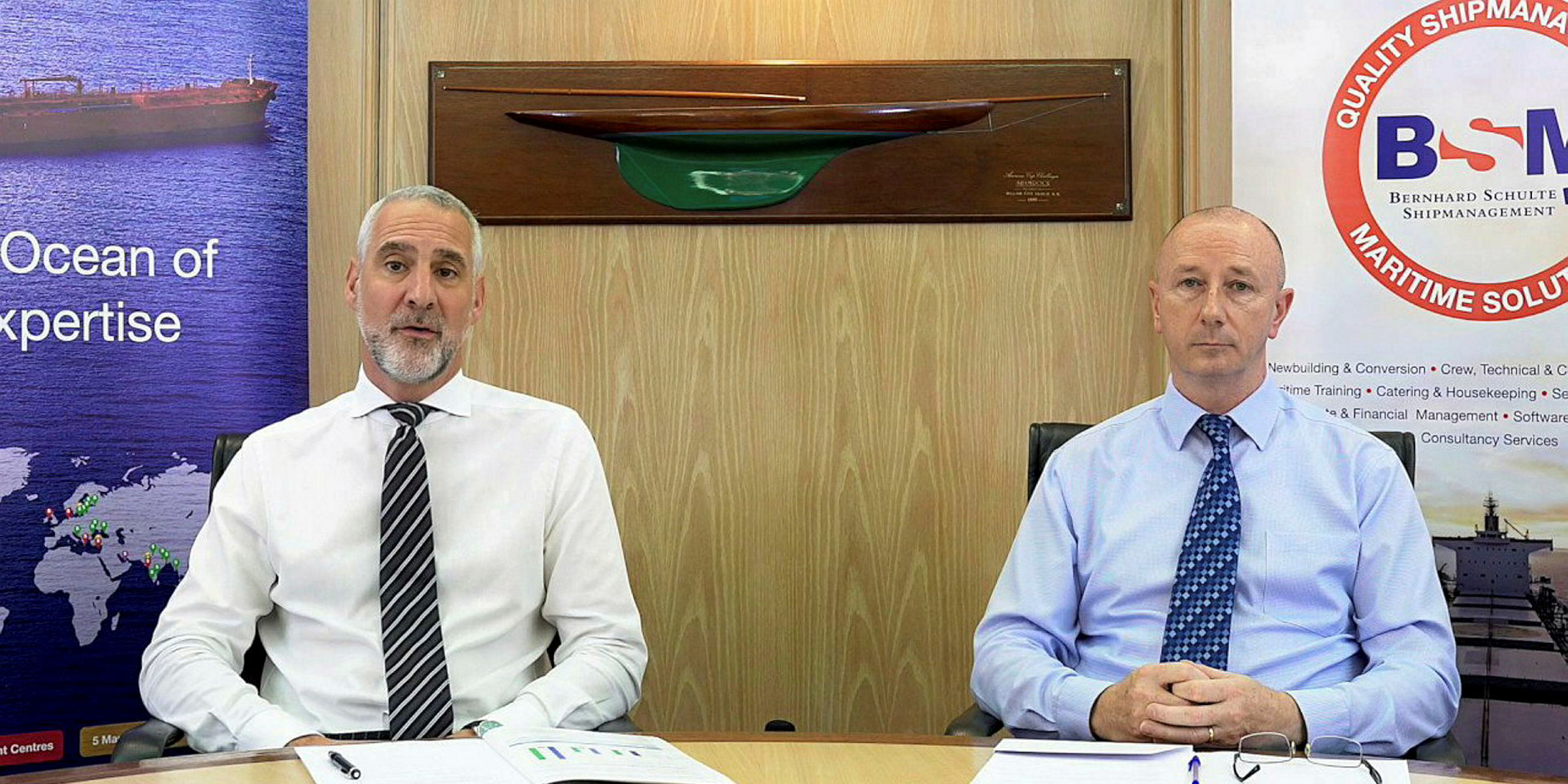Bernhard Schulte Shipmanagement (BSM) executives say the key challenge facing the shipping industry is not just attracting young people but providing high-quality training amid fast advancing vessel technology and a stricter regulatory environment.
“Although up until this point we have not seen vessel operations stopped due to a lack of officers, we have seen a diminishing quality of officer available in the world seafarer pool to man our ships,” BSM fleet personnel director Giles Heimann said in the latest issue of the company's magazine, Highlights.
Two “pinch points” are management-level engineer officers and officers required to operate specialised tonnage, such as LNG and LPG carriers and chemical tankers.
BSM says training needs to reflect the increasing workload and responsibilities shouldered by officers as new technology and automated systems are implemented.
Heimann says industry investment in recruitment, training and retention of seafarers is often scaled back when times are tough.
He says BSM is doing the opposite, recognising that seafarers represent the single most important component of the service it provides to customers.
Recruiting high-calibre new entrants and nurturing them through its cadet programme is key to its success, Heimann adds.
“It is only through the recruitment of these cadets and ensuring they have the opportunity to serve on BSM-managed vessels during their training, followed by the offer of continued employment once qualified, that we can manage our internal requirements for well-trained and competent officers,” he said.
“We have to ‘homegrow’ to ensure that we are not adversely affected by the skill shortages facing the industry in general.”
With a pool of some 18,000 seafarers, BSM recruits talent from more than 30 different countries. But predominately they come from the Philippines (40%), India (20%), China (10%), Russia (5%) and Ukraine (5%).
Heimann says providing effective operational support for seafarers has had to change radically given the changing nature of the job, fewer onboard personnel and increased responsibilities.
“Modern communication methods, while enabling support from ashore, need to be used to assist rather than micro-manage,” he said.
Given the rising regulatory and administrative burden that officers have to cope with, BSM has simplified its operating manuals through its Project Pilot intiative.
“That allows seafarers to read, refer to and digest vital information in easy-to-understand and clear formats,” said corporate training manager John Pritchett.
BSM's Seafarer Portal mobile app is another innovation that facilitates easier communication with onshore offices, while ensuring seafarers have access to key information during tours of duty.
Learning-centric training is also key for BSM.
“Training often takes place during leave periods, which means that while the courses are designed to be pressurised and realistic they must also be enjoyable and engaging,” Pritchett said. “The results are that seafarers not only finish the courses, particularly those that are conducted on our simulators, but enjoy the sessions so much that they want to come back for more.”
BSM also puts crew welfare centre stage through engagement tools such as the BSM Seafarer Satisfaction Survey, which allows seafarers to comment directly on the company’s performance.
“The survey includes tough questions: asking how the seafarers rate their levels of remuneration, the performance of the shore-based operating teams, satisfaction with their employment in general, and related factors such as the quality of the catering provided onboard,” Pritchett said.
In a survey conducted last year, he says, it “was rewarding to find that the majority of our seafarers are very happy with their employment and would recommend employment with BSM”.
Pritchett flags up BSM’s retention rate of more than 90% and the fact that over 40% of its seafarers have been with the company for more than five years.
Heimann says there is no one solution to the officer shortage.
“The answer does not lie in any specific nationality of future seafarer," he said. "We have to look at the best available among many nationalities, attract them to work for BSM as a professional, responsible employer, and ensure that we support, train and empower them to achieve their goals.
"This includes beyond working at sea, with opportunities to work ashore if they so wish, to ensure that we retain their skills and experience within the BSM family."



